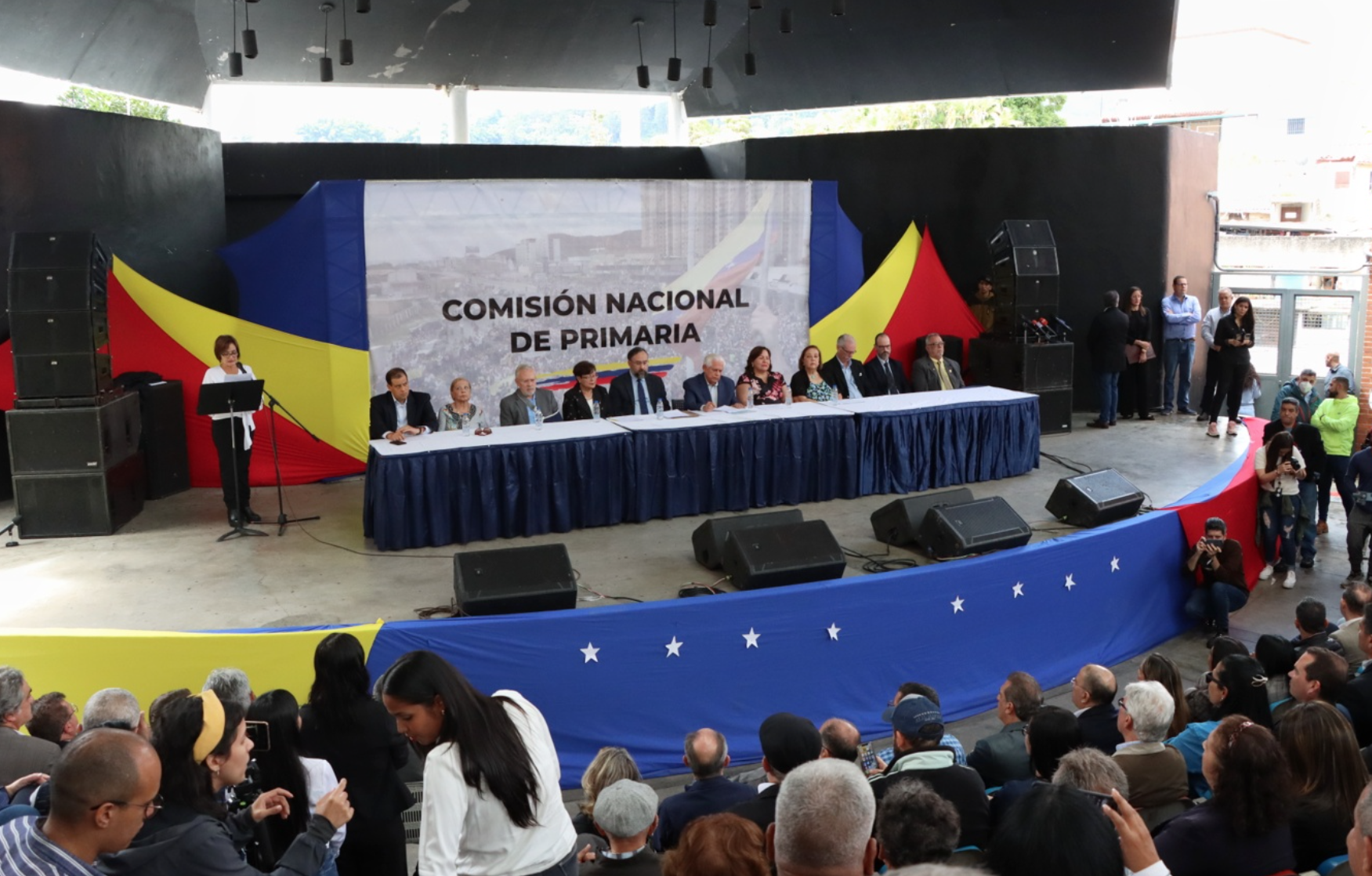After the profound repercussions that the recent implosion of the interim government had for the opposition in Venezuela and after numerous deliberations, the National Primary Commission defined a date for the different political opposition forces to measure themselves electorally and establish a unitary candidacy with a view to the next presidential election. Besides the date (October 22, 2023), a chronogram of activities was announced, as well as the regulations for the nominations, campaign guidelines, and logistics of a process that still leaves many questions. Especially if it is taken into account that this new democratic resistance attempt is framed in an authoritarian environment in which doing politics, outside Chavism, represents great risks.
This opposition primary election process is taking place in a country with more than 300 political prisoners, forced exiles, disqualifications, judicialization of parties, legislative attacks on organized civil society and on freedom of the press in the midst of an ongoing investigation by the International Criminal Court for crimes against humanity.
Unanswered questions
In view of this scenario, some questions arise about whose answers continue to divide the opposition in Venezuela. The main question is: what guarantees does the elected candidate have that he or she will not be arrested or disqualified by the Government before officially registering his or her candidacy for the 2024 presidential election? This is a question that every opposition politician asks himself, but whose answer is not clear, due to the lack of guarantees. In fact, in the register of disqualifications of the Public Prosecutor’s Office, which has not been published since 2018, prominent political figures such as Tomás Guanipa, Delza Solórzano, Henrique Capriles Radonski, among others, stand out.
Another question before this new process is: what role will the electoral authority have in the opposition primaries? The institutional performance of the National Electoral Council (CNE), traditionally controlled by the Government, has been highly questioned and the electoral registry is intentionally outdated. In fact, according to journalist Eugenio Martinez, an expert in elections, it is estimated that three million voters have been displaced from voting centers near their homes, and more than four million Venezuelans between 18 and 30 years of age are not registered to vote.
These outdated figures are much greater if you take into account the huge emigration the country has suffered recently and that only a minority of those who left are registered in the consulates of the receiving country if there is a consulate at all. Added to this is the long history of documented irregularities, political bias, and unwillingness to international observation since 2018.
The financing of this process also generates doubts. It is unofficially estimated to be between 7 and 12 million dollars, very high figures for the standards of the Venezuelan economy, considering, in addition, that it continues to be a country subject to exchange controls, international sanctions, and restrictions of all kinds that hinder the financing of the opposition both nationally and internationally. All this could become considerably cheaper if an agreement is reached with the CNE. However, this would threaten to rekindle the division, bearing in mind the majority perception of partiality of the electoral arbiter and an insurmountable discrediting of the authenticity of the results.
Many challenges and an opportunity
It is also worth mentioning that, according to different studies, in the last months the Venezuelan opposition is experiencing its greatest fragmentation and discredit in terms of popular support over the last years. Besides, there has been a resurgence of anti-party opinions, as well as an increase in the generalized distrust in the representation of its political expectations. According to the consulting firm Datanálisis, 61% of the people would like a political change, however only one out of ten believe that there is a real possibility to achieve it in the next two years.
Regardless of the prevailing limitations, controversies, and uncertainties, the contemporary history of the Venezuelan opposition has had since 2008 (and through 2012) an important collective learning of the great political value that internal democratic processes bring with them. The outlook seems discouraging and adverse. However, the 2023 primaries are, at present, the only collective action strategy still in place.
These elections are not free of dangers and controversies; however, they could be, once again, the binding process of re-legitimization and electoral mobilization that Venezuelans so much desire. Therefore, the oppositions, in spite of their differences, mistakes, disagreements, and limitations, could consolidate a political option to electorally resist oppression and barbarism.
*Translated from Spanish by Janaína Ruviaro da Silva













